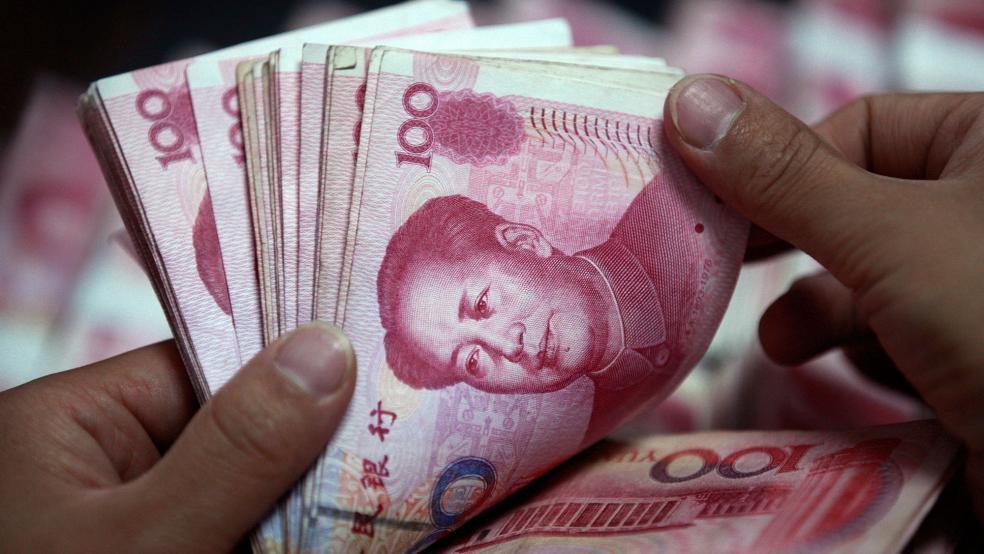President Obama left little doubt last week that he views China as a serious threat to U.S. economic dominance overseas.
“The fastest growing markets, the most populous markets are going to be in Asia,” Obama said during a joint press conference with Italian Prime Minister Matteo Renzi at the White House Friday. “If we do not help to shape the rules so that our businesses and our workers can compete in those markets, then China will set up rules that advantage Chinese workers, and Chinese businesses.”
A day earlier, Republican and Democratic congressional leaders tentatively agreed to give Obama “fast-track” authority to negotiate a 12-nation Trans-Pacific Partnership trade and regulatory treaty. Obama insists the treaty would give the U.S. a competitive edge over China.
Related: U.S. Lawmakers Present Fast-Track Trade Bill
The Chinese economy has jangled some nerves in Washington and on Wall Street, at times for different reasons. For example, global stock markets took a tumble on Friday and the Dow Jones Industrial Average fell by 1.54 percent or nearly 280 points — to 17,826 — in part because of investors’ fears about new policies introduced by regulators in China to slow a strong market rally there. Chinese stocks are up more than 50 percent this year, even as the Chinese economy has been cooling, posting its slowest official growth rate since 2009.
While Wall Street worries about a brewing Chinese market bubble and moderating economic growth, political leaders in Washington and economists in the halls of financial institutions such as the World Bank have expressed concerns over the implications of China’s rise to economic superpower status. Former Treasury Secretary Henry M. Paulson Jr., who was in Washington last week to promote a new book on China, noted that China has become “as much a source of concern as a source of awe.”
“We find ourselves increasingly at cross purposes with an ever more competitive China as it flexes its newfound muscles in world markets and in bitter territorial disputes with its neighbors, while it seeks to challenge the U.S.-led order in Asia,” Paulson wrote in the preface to his book, Dealing With China: An Insider Unmasks the New Economic Superpower.
Related: Here’s Why the Global Economic Recovery Could Stall Out
At the World Bank-International Monetary Fund spring meeting this weekend, China’s new Asian Infrastructure Investment Bank was an urgent topic of conversation. The bank, designed to pump at least $100 billion into the construction of badly needed railways, roads and pipelines in underdeveloped areas of Asia, will directly compete with the U.S.-controlled World Bank and the Asian Development Bank, which is dominated by Japan. The U.S. refused to join, but 46 other countries, including Britain, Germany, Australia and South Korea, signed on as founding members.
The combination of China’s direct challenge to U.S. economic influence abroad and bitter partisanship in Congress over Obama’s trade and foreign policy initiatives have led some experts to question whether the U.S. is retreating from global economic leadership just when it’s most needed, as The New York Times reported on Friday.
Yet Paulson, who led the Bush administration and Wall Street through some of the most harrowing months of the 2008 financial crisis, seems far more sanguine about the U.S. continuing to play the preeminent leadership role in global economics.
During a conversation with former Treasury Secretary Timothy Geithner at the Smithsonian’s National Museum of American History Thursday evening, he argued that while China remains a formidable economic rival to the U.S., its $10 trillion economy has “run out of steam and has to be rebooted.”
Related: Democrats Enraged Over Closely Guarded Trade Deal
In occasionally searing pronouncements on the state of China’s financial health, the one-time CEO of Goldman Sachs asserted that China needs to shift away from excessive dependence on exports and inefficient government investment in infrastructure that are driving up the country’s debt.
Instead, he said, the Chinese leadership needs a new “growth model” that would move the country’s economy towards increased domestic consumption and a greater emphasis on service industries and high-end manufacturing. “That’s an enormous task, complicated by the fact that much of the economy remains under the thumb of central planners, even after years of reform,” Paulson contends.
The former Treasury secretary has extensive first-hand knowledge of China gleaned from over 100 visits to the country and nearly a quarter century of dealings with Chinese officials on commercial matters and affairs of state.
“Entrenched interests are resisting further changes,” he wrote in his book. “Meantime, years of not-so-benign neglect have left the environment a near disaster that has sparked growing restiveness among China’s citizens.”
Related: Geithner Book Settles Scores, Defends Policies
Still, for all their problems, China remains “a formidable competitor,” Paulson said – and certainly one that has the Obama administration on edge.
While at Goldman Sachs, Paulson negotiated early deals with China — including the biggest private equity investment the firm had ever made, a $2.6 billion investment in the Industrial and Commercial Bank of China, according to USA Today. As Treasury Secretary, he helped create the Strategic Economic Dialogue to promote high-level consultation between the two countries.
“The key to me was to be yourself” and to fully comprehend the Chinese motivations and political and economic needs in order to work toward a compromise, Paulson said Thursday evening.
“It was a lot like your dealings with Congress,” Paulson joked with Geithner, who appeared to wince just thinking about his frequent jousting with Republican lawmakers during his tenure as Treasury Secretary in the Obama administration from 2009 to 2013.
Later, when Paulson noted that Chinese are “perplexed by our political system,” even as they share many common goals with the U.S., Geithner quickly added, “We’re perplexed.”
Top Reads From The Fiscal Times:


